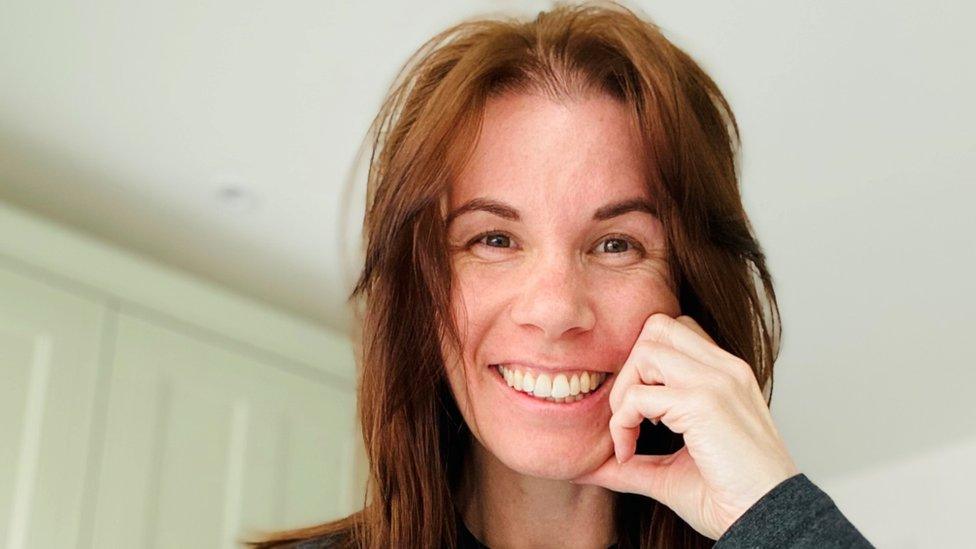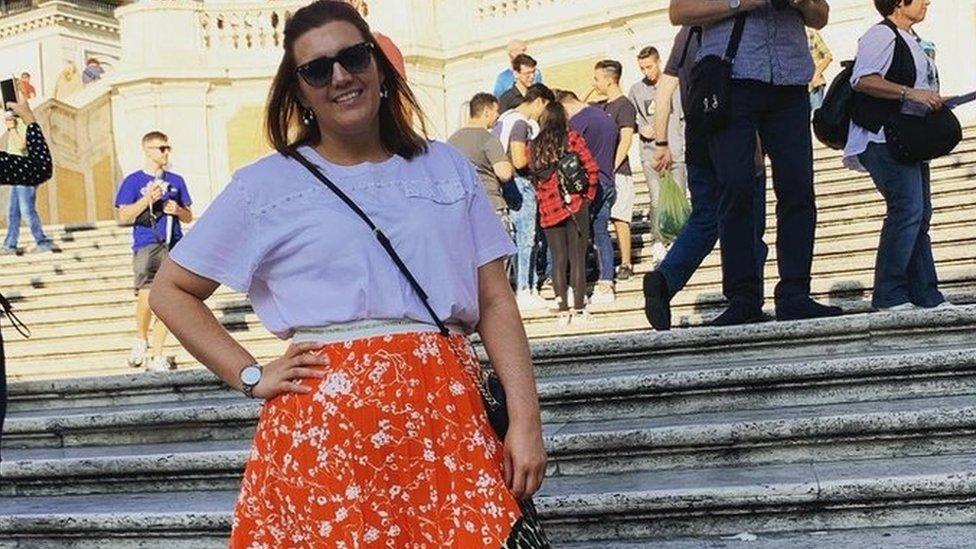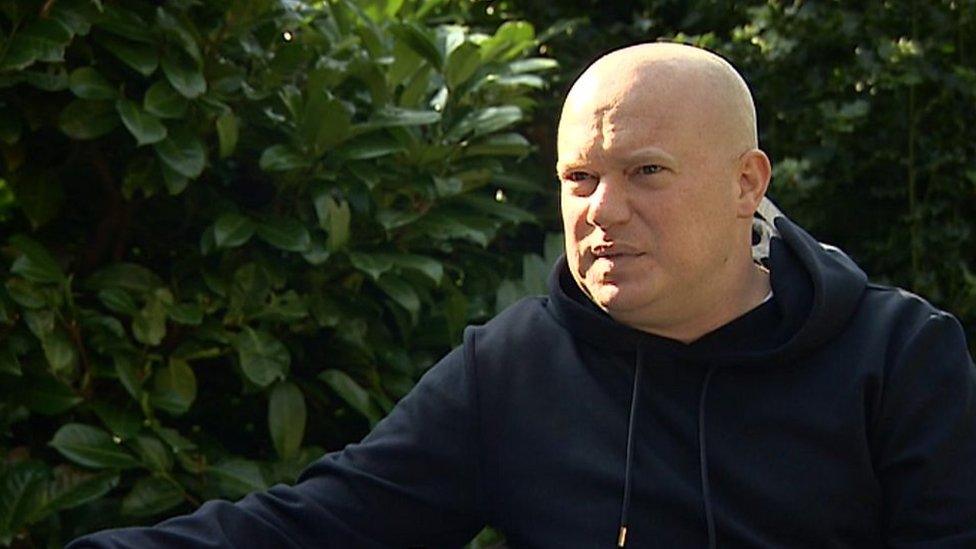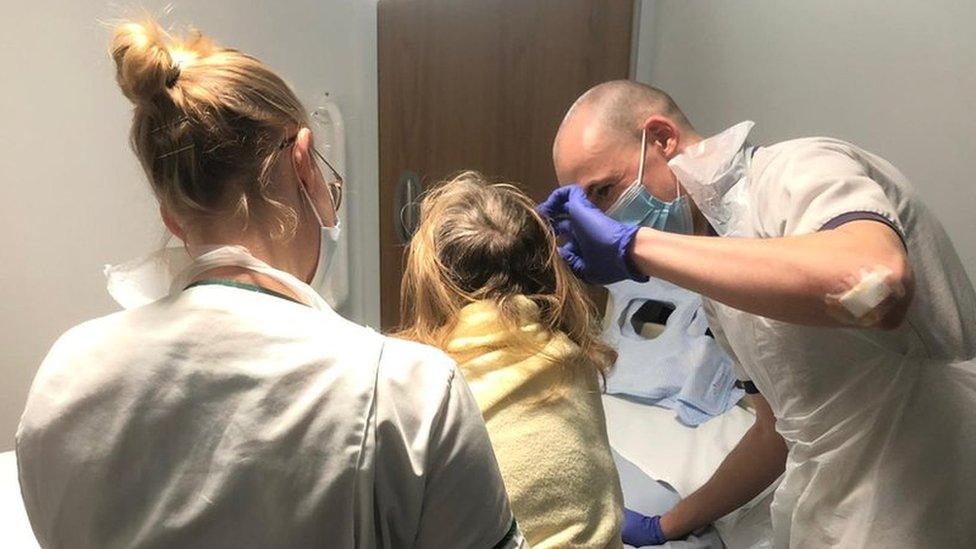Stroke research: Didcot dance teacher calls for more funding
- Published

Sam Hook's stroke was diagnosed two days later by an MRI scan
A dance teacher who feared her career was over after suffering a severe stroke has called for more funding for research and support.
Sam Hook, 40, said she had been having migraines and temporary blindness in the months leading up to her stroke.
It was only when she had an MRI scan, two days after collapsing at her home in Didcot and ending up in hospital, that her stroke was diagnosed.
She believes research could increase awareness of some of the early signs.
The Stroke Association says research is underfunded compared to other health conditions that have similar life-long effects.
Tara Lakin, the charity's service delivery lead for the South East, said: "Stroke strikes every five minutes in the UK and while it changes lives in an instant, the brain can adapt and rebuild after stroke.
"That's why research means everything to our nation's 1.3 million stroke survivors and their families, because of the life-changing impact it could have on their future."

Mrs Hook says therapy and the support of husband Nick and their sons Albert and Sidney helped her return to teaching
Mrs Hook, who is head of dance at Didcot Girls' School, said: "I had always been suffering from headaches so they [doctors] put me on beta blockers to take every time my vision would go - it started happening about four or five times a month."
"It would go blurry, then go completely. One time it happened in my classroom when I was teaching. The vision would come back after 20 minutes and I would get these horrendous migraines which sometimes would last for days. My vision still goes blurry.
"Maybe research could increase awareness that these symptoms can be an early sign of stroke."
She said that while her face did not droop during her stroke in 2020, which is a common sign, her left eye "just locked wide open and I couldn't shut it".
'Determined'
A CT scan later that day did not show anything but she said her health was "deteriorating rapidly".
"By the end of the day I was unable to talk or walk properly and I could not control or use the right side of my body at all," Mrs Hook explained.
An MRI scan two days later determined there was bilateral vertebral artery dissection - a tear which could have been caused by an old injury - and that she had suffered an ischaemic stroke.
Mrs Hook, who has been back at work full-time since September 2021, said: "The biggest thing for me was thinking I couldn't dance again. It's all I've ever done and I do it for a living. Dance is my outlet. If I'm really sad about anything I dance, if I'm happy about anything I dance. I've danced since I was two."
She added: "My right side is still much weaker and I am still limited, I drop things a lot of the time.
"I will never be as strong physically as I was but I am determined to do what I can."

Follow BBC South on Facebook, external, Twitter, external, or Instagram, external. Send your story ideas to south.newsonline@bbc.co.uk, external.
- Published9 May 2021

- Published29 March 2022

- Published2 February 2022
